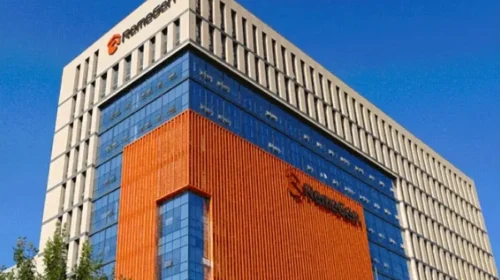FAST NEWS: Nomura takes up Kintor Pharma stake

The latest: Japanese financial group Nomura Holdings disclosed it purchased 5.91 million shares of Kintor Pharmaceutical Ltd. (9939.HK) on Jun. 1, raising its stake in the biotech company from 4.06% to 5.39%, according to a new Hong Kong Stock Exchange filing.
Looking up: Kintor has yet to make any profit, reporting its net loss widened to 954 million yuan ($135 million) last year. But Nomura’s bet on the stock could reflect growing confidence in the company’s prospects.
Take Note: Nomura’s shareholding in Kintor now exceeds the 5% threshold that requires disclosures of any changes in its holdings, meaning it will need to publicly disclose any future increases or decreases in the shareholding.
Digging Deeper: Kintor is a cancer drug maker founded in 2009. It listed on the Hong Kong Stock Exchange in 2020, but none of its drugs have been approved for sale and its losses have widened for the last five years. The company started to develop a Covid oral drug Proxalutamide in 2021 at the start of the pandemic, but the drug is still in clinical trials. Significant increases in Kintor’s R&D costs led the company to report a net operating cash outflow of 960 million yuan last year, prompting it to raise approximately 510 million yuan in a share placement last December to replenish its capital.
Market Reaction: After opening 5.6% higher, Kintor shares gave back most of those gains on Wednesday morning and closed up 1% at HK$3.94 by the midday break. The stock now trades at the lower end of its 52-week range.
Translation by Jony Ho
To subscribe to Bamboo Works free weekly newsletter, click here





